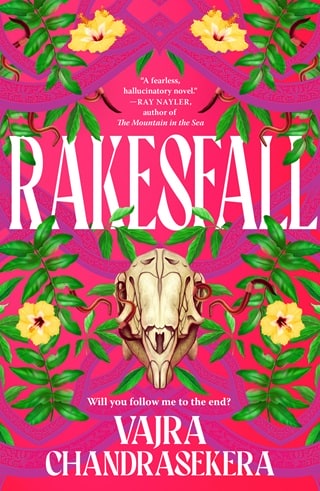Chapter 7 The Torturer
The offices I visit, who have IT support contracts with the company I work for, are embassies or the local offices of international organizations, or the local nonprofits and activist organizations funded by them. NGOs, in other words, which in the local media and popular discourse is a slur for interfering foreigners or race traitors who take money from the interfering foreigners. Dollar crows. The NGO is a figure of imperialism and treason, and talk of rights or peace or justice is considered at best a grand hypocrisy, a veneer over mere venality, cover for an active international conspiracy to slander the good name of a sovereign nation which has a perfect right to make war on itself in any way it likes. At worst, rights and peace and justice are in themselves bad and undesirable.
My employer chose to specialize in working for this sort of client because the foreign funding lets them pay well and on time. I am sent out more often than other tech support staff because I'm not afraid of white people, speak English well enough, and most of all, I'm good at fixing the mysterious computer problems that arise when your office is the target of curses from millions of people. The thing that makes me good at my job is that I understand it's not about logic or reason. Any non-obvious computer problem is magic, quantum bogodynamics in effect. You have to approach each problem like a yakadura, condemned black rooster in hand to be waved over it, wielding a screwdriver instead of a giraya. Contagion, sympathy, propitiation, banishment. The principles are the same.
Being alone with computers is to sink into other people's secrets. Unlike doctors or priests, there is still little understanding that supportive technicians are secret-keepers. I am not bound by any oaths, though it's easier for me to keep other people's secrets than my own, so I have. But I am in no way above learning those secrets. I do not unsee them when they pass before my eyes. I do not stop myself from click-clicking. I read press releases before they go out; a small thrill. I read assessments and commentaries written for private circulation in elite circles, on the war, the government, on the feuding president and prime minister. I hold my breath and dip below the surface of things. I thought it a harmless curiosity until I found the leaked report. I still wonder if it would have made a difference if I'd found it before I voted. Perhaps I would have voted the same way, grinding my teeth, only to end up here on this street in any case.
The leaked report was a PDF. Ninety-two megabytes for a hundred and fifty-nine scanned pages. The original report, the printout that had been scanned, was dated seven years ago, and it concerned events from seven years before that. It was the private report of a presidential commission investigating a detention and torture camp under the then-previous administration, never meant for publication. It named names: mostly policemen, but also the politician who had been in charge, who was, by narrative as well as historical necessity, the same man I'd recently voted for, the new prime minister.
This was not quite a revelation. I had heard stories and insinuations aplenty; everyone had. It was more or less a given after two uprisings and twenty years at war that any senior politician would be embroiled with the security state. It was not excessive to assume the cursed parliament is peopled primarily by gangsters, murderers, torturers, and war criminals, few or none of whom would ever be prosecuted. I understood this. It was not the revelation that drove me: it was the report itself. It was so lonely, so pathetic, sitting here as a ghost of itself in an oversized PDF that had never been OCRed, in a folder that nobody had opened in years, the file name mangled, the scans misaligned so all the pages were at an awkward angle, uselessly naming names, pointing a finger at the sun while it bled like a punctured yolk.
That day I began to think of him as the torturer, which was of course absurd and unfair. First, it seemed likely that he had never held the knife, but merely employed torturers whose own culpability was thereby obscured, and second, that he would be far from the only one, so to think of him as the torturer was to erase many other torturers. But I had voted for him, and he had won, because he offered peace. I could not help but think of him as the prime torturer. I owed that and more to the ghost of the person I imagined, who may never have existed, someone who scanned this report hoping it would be read, that perhaps something would happen, rather than the report becoming what it was: a political weapon for the prime torturer's opponents to hold over his head in exchange for concessions. Politicians may seem to be at odds, but they never truly betray each other: they are all patriots to the nation together. Their disagreements and conflicts are a play put on for ghosts and people; only we can be traitors.
Each time I'm stopped on the street, I try to keep my hands respectably at my sides, but the spiking, stabbing pain in my temples is too much. My movements, too, are ritualized. First the downturned hands to demonstrate self-control, then the twitching fingers, the inevitable reaching up to the temple. I press the skin to the side of my eye hard enough that my vision blurs. I've bitten my tongue again. There are more and more convoys passing by. Each one stops time on the street, ordinary traffic held back at intersections, pedestrians brought to rest where they stood, until the convoy is past.
I let them all go by, one by one, until the one I've been waiting for finally comes, with the full honour guard of motorcycles, several jeeps full of soldiers, and the trailing ambulance: the prime torturer on his way to his cousin's cursed parliament. My mouth tastes like copper, like salt.
The police are not especially alert. It's been a long day, and they've already cleared the street several times over. I drift slowly across the pavement until the first wave of security jeeps passes me by, and then I quicken my stride to step into the street, swinging my backpack off my shoulder, holding it up in my hands. It is heavier this way, as if the metal and plastic within double in weight as they come to the fore. In moments I am in the middle of the street, blocking the path of the convoy.
The prime torturer's car screeches to a halt before me. It could have run me over, but the brakes are good and the driver skilled. It swerves to the side instead and barely skids before coming to a halt a few metres ahead of me. The tinted rear passenger-side window is directly in front of me. I can see myself in it. The whites of my wide eyes, the thunderhead sky heavy behind me, the high grasping fingers of the rain trees above.
Out of the corners of my eyes I see soldiers spilling from jeeps, police like a muddy river flooding its banks. Men shriek like tortured engines. I look directly at the mirrored window and raise the backpack in front of my chest like a weapon. In the moment before I open my mouth as wide as it can go and let my long tongue dangle out red and bloody and alive, I say boom.
 Fullepub
Fullepub 



